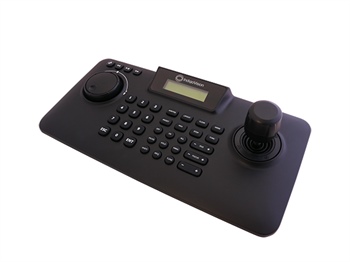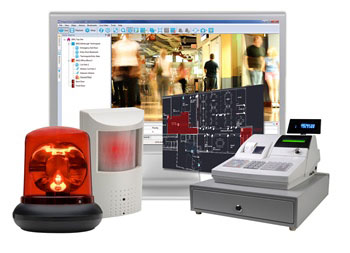
What can hospitals do to maximize their security surveillance system in 2021?
Security in healthcare can be nuanced and complicated. Hospitals, doctor’s surgeries and other healthcare premises present unique security challenges to security operators and their teams.
Video security systems must work in support of, and in conjunction with, medical services. Moreover, in some hospitals, CCTV systems will be using the same bandwidth as medical and pharmaceutical equipment - it is vital in these cases that security software does not disrupt hospital operations.
In this post, we’ll explore what healthcare provider security teams can do to maximize what they get out of their security surveillance systems, keeping patients and staff safe, even when budgets are tight.
Patient & staff safety
Of paramount importance, for healthcare security personnel, is the safety and security of all patients and staff. Hospitals are typically large, open-campus areas, with multiple entrance and exit points that vary with regards to permissions and access levels.
From public atriums and Accident & Emergency departments, to quarantined wards, this environment necessitates differing approaches to security and therefore, the surveillance equipment requirements can be complicated.
Common concerns include:
- How do you determine a legitimate hospital visitor from someone who could cause harm, intentionally or otherwise?
- With such heavy footfall in and out of the hospital, how would you identify, track and isolate an asymptomatic Covid-19 patient walking through the building?
Because hospitals are highly charged, emotive environments, meaning situations can unfold rapidly, security operators are under immense pressure to be on high alert for situations escalating quickly. IndigoVision was cognizant of that in a recent partnership with Barnsley Hospital NHS Foundation Trust, where they consulted with Mike Lees, Head of Business Security, in order to design a surveillance system that was appropriate for the building.
Hospitals are places with high emotion. Unfortunately, people die here. Babies are born here. You may learn that you have a fatal disease here. The hospitals are running at that high emotion all the time. They are a bubble waiting to burst, and it's often our front-line security teams that assist and ensure that any negative incidents surrounding that emotion are kept to a minimum.
In addition to evidence collection, hospital surveillance systems must function in the de-escalation of potentially violent situations, such as aggression towards staff. Solutions and tactics to maximize the effectiveness of a hospital’s security surveillance system include:
- Visible, on-site security cameras as a deterrent
- Body worn cameras to capture on-the-ground footage
- Camera audits to determine CCTV blind spots
Security, ultimately, forms part of patient care: simply put, if staff do not feel assured of their security and safety at work, they will likely be reticent about coming to work. A diminished workforce is a healthcare risk, as patients will therefore not receive the same level of care. Security assets need to be seen as part of healthcare: looking after staff who look after patients.
Security operators can provide reassurance to their staff that they are well protected by a good CCTV system, that can, and will be, used as evidence in court where needed.
Restricted access - equipment and medicines
Another important consideration for hospital security teams is CCTV and surveillance around restricted areas. Controlled areas containing dangerous and/or expensive equipment must be well covered with overt video surveillance to prevent theft and/or damage, such as:
- Multi-million pound MRI scanners
- Controlled substances
- Pathology labs.
Real-time video footage of these areas is obviously indispensable, particularly so during and following the Covid-19 pandemic. Complete oversight of the entire hospital premises from one central security control center is advantageous here, should there be an outbreak requiring localized quarantine and isolation of wards.
Security personnel must be able to view, analyze and mitigate outbreaks from the control center without endangering themselves by entering a quarantine zone.
Finance issues impacting duty of care
We know that sometimes budget can come between what you’d like to do to upgrade your security surveillance system, and what you can genuinely afford to achieve.
In the case of the public healthcare sector, where budgets are so delicately balanced, this can sometimes mean the difference between a hospital purchasing a new piece of life-changing medical equipment, and updating their cameras or software: it can be challenging to present your case.
Below, we look at some of the ways security personnel can maximize their budgets to ensure everyone in their duty of care is as safe as possible.
1. Balancing budgetary decisions
A fundamental tenet of healthcare security - both for NHS Trusts and private hospitals - is the matter of balancing budgetary decisions. Choosing between purchasing more medical equipment versus updating legacy security hardware demands serious discussion. Electing to replace old cameras in a hospital where there have been few recent security threats rather than installing a much-needed new CAT scanner can be met with criticism.
Fortunately, security teams can help managers make this decision by presenting affordable options. For example, offering upgrades of video management systems instead of costly hardware overhauls.
In order to secure budgetary approval and buy-in from senior management, security operators need a solution that:
- Retains existing cameras
- Allows for incremental hardware upgrades
- Scales as budget increases
2. Prioritizing surveillance updates
Prioritizing surveillance updates must be approached with careful consideration:
- Which cameras should be replaced first?
- What type of cameras should be installed and where?
- Which areas would benefit from using audio recording?
Deciding which update or installation is the most effective will partly be informed by the hospital’s own security strategy; preventative measures to reduce incidents require a different operational set up than reactive approaches.
For the Barnsley Hospital NHS Foundation Trust, this prioritization was realised by digitizing the pre-existing (20 years old) cameras. IndigoVision encoded the cameras, enabling the use of a proper video management system (VMS) rather than an aged analog system. This gave them the ability to:
- View video on a single platform, rather than via multiple DVRs.
- Increase the speed with which evidential footage can be exported when major incidents occur
- Configure Salvos within the system to create camera clusters that can be viewed in quick time in case of an emergency.
3. Risks associated with outdated security systems
While staff and patient security remains the focus of security personnel, it is important to note the risks associated with continued use of broken or outdated CCTV systems. Simon Steer, Regional Sales Director - UK and Ireland at IndigoVision says:
The risks and dangers of inaction can be huge. For example, if your entrance camera is broken and your NVR isn't recording; perhaps there was a broken power supply and somebody knew about it. Then a violent incident occurs and you’re asked: ‘where's the recording?’ There isn’t one. ‘What happened to the CCTV camera?’ It's broken. ‘When did it break?’ Three months ago – we knew about it, and didn't fix it. Now you’ve got a lawsuit to face.
Neglecting to replace outdated or broken systems can impact duty of care responsibilities. Further, where does this then leave security department’s with regards to liability and blame?
The legal, and therefore financial, ramifications here are immeasurable, leaving Facility and Estates managers facing a false economy where they cannot afford to fix the equipment, but cannot afford not to. It would usually have been a better decision to incrementally update systems as and when budget is available over time, than wait for a major incident to jolt the team into taking much more costly actions.
The security pressures on hospital operators is extensive, and made much more complicated given budget restrictions and the duty of care implications. As such, IndigoVision offers scalable solutions that adapt healthcare operator’s current surveillance systems whilst being mindful of wider limitations on their finances and time.
Contact IndigoVision about your security systems
If you think your organisation could benefit from updating its security systems, contact IndigoVision today








